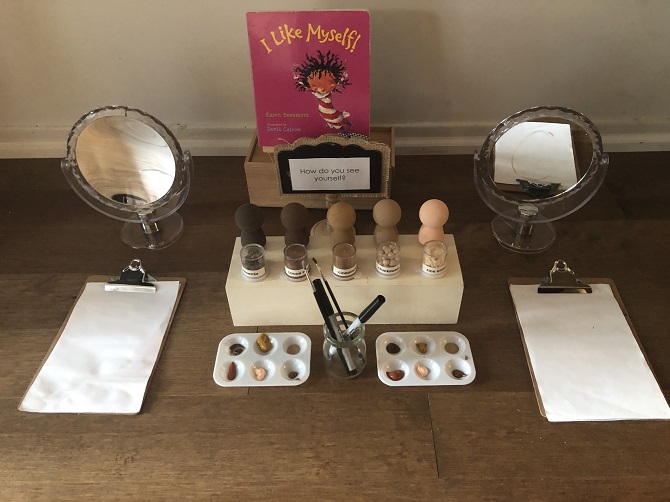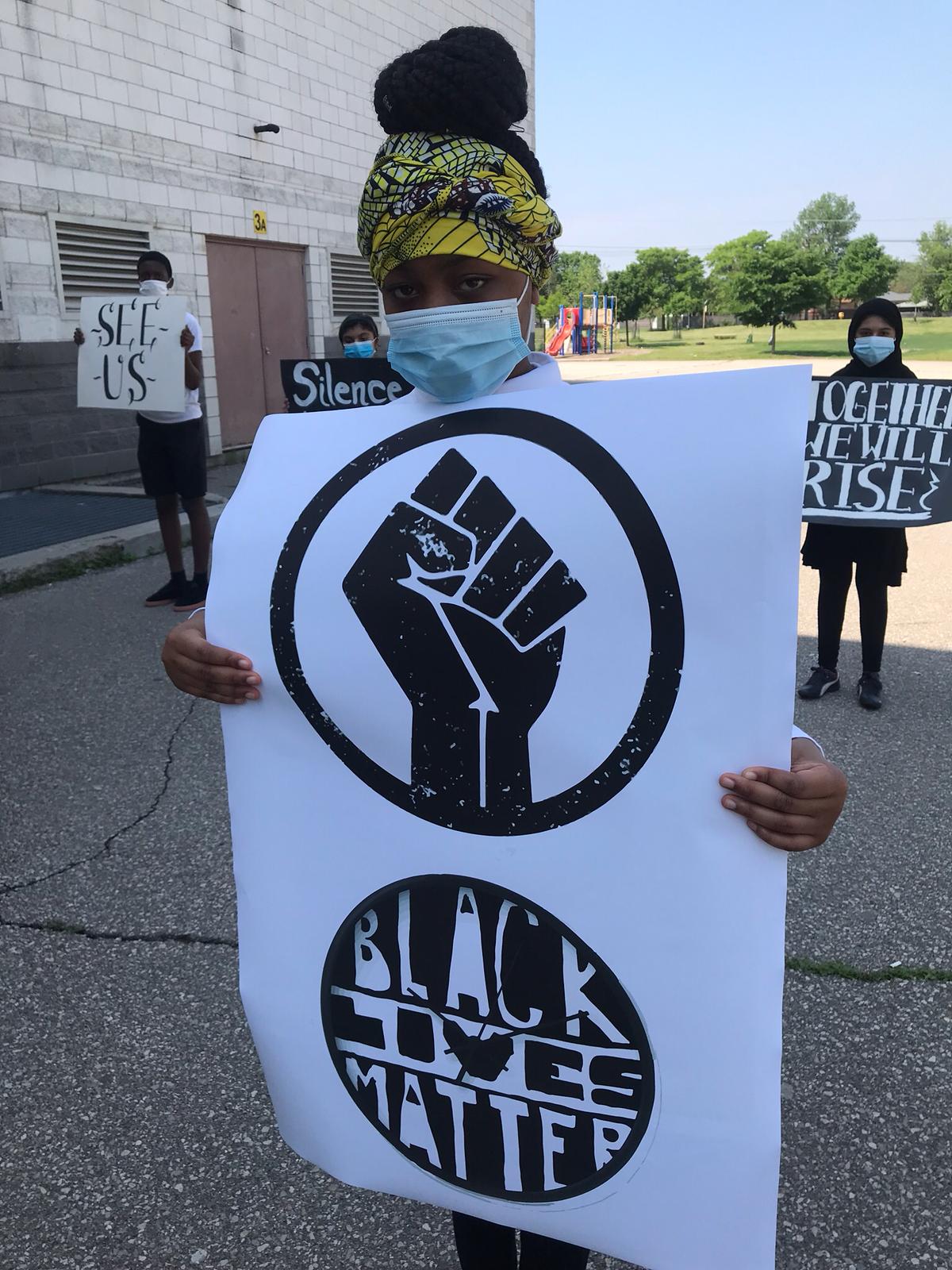Opportunism or Opportunity?
Navigating educational equity in the time of COVID-19
Societal inequities are replicated in schooling along the lines of Indigeneity and race, gender, gender identity and sexuality, class, disability, citizenship, place of birth, faith, and more, and become more layered and complex when we consider intersecting identities. We see these long-standing inequities play out in practices such as academic streaming; disproportionate levels of punishment, suspension and expulsions for Black students; curricular violence that exists in the erasure of the histories, realities, and resistance of Indigenous, Black and racialized people in Canada; disproportionately higher proportions of White, middle-class students in gifted classes, French Immersion programs, specialty arts programs, and other “programs of choice”; limited accountability measures to address often persistent and traumatic experiences of discrimination and harassment for students, families, and staff that are racialized and marginalized; and more.
In times of greater crisis and strain on systems and structures, long-standing inequities are simply exacerbated. In this time of a global pandemic, we see growing gaps between the ability of private and public schools to support the safety and well-being of children, we see massive inequities with regards to student access to technology and Wi-Fi, and we see the disproportionate impact of COVID-19 on racialized families and communities and families marginalized by poverty.
Many families and communities on these lands have been living through another pandemic that we have yet to name as a society. White supremacy and settler colonialism have existed in this place that some refer to as Canada, long before March 2020. The question is: Why haven’t we seen these oppressive structures as a global crisis? It makes me question which lives are deemed worthy and which lives are deemed disposable. Whose pain and suffering is avidly attended to, and whose pain and suffering is erased? In this current moment, we are seeing an upsurge in awareness of how Whiteness and White supremacy have and continue to construct anti-Blackness and perpetuate anti-Black racism politically, economically, socially, mentally, emotionally, and academically.
How might this time of global upheaval, massive uncertainty, and racial reckoning influence who we choose to be and how we choose to live? How will it influence the how and why of schooling in ways that will both challenge and perpetuate historical barriers to educational access and opportunity?
Perhaps a better question is: Who will view this time as an opportunity for collective transformation and freedom, and who will view it as opportunity for self-interest and self-protection?
We have seen many examples of “opportunism” in the last few months. For example, the rise of pandemic pods, in which small groups of children from different families learn together outside of traditional school settings, similar to homeschooling or private schooling, demonstrate increases in privatization in education, which provide “choice” for more privileged families and result in disproportionately negative impacts for historically marginalized populations (Winton, 2020). We were already seeing calls for greater moves to e-learning prior to the pandemic, and the redirection of large amounts of public education dollars to private technology companies. As we move into an era of unprecedented online learning, we have to be vigilant about efforts to normalize a form of schooling that was developed in response to a pandemic. While educators are doing their best to recreate community and rich learning experiences online, mass efforts to increase online learning in a post-pandemic era will increase inequities in access and de-emphasize the importance of relationships, creativity, co-constructing knowledges, and developing critical consciousness that are such crucial aspects to the learning experience. This is all against the backdrop of an analysis by the Canadian Centre for Policy Alternatives, indicating that Canada’s top billionaires “added $37B to their fortunes since the pandemic started, during six of the most economically catastrophic months in the country’s history” (Canadian Centre for Policy Alternatives, 2020).
Crisis has the potential to breed opportunism, which has historical roots in colonialism, White supremacy, and capitalism, as well as contemporary manifestations in the form of grave injustices. But crisis also has the potential to return us to more just, humane, and compassionate approaches to schooling and society. We might seize this opportunity to resist traditional educational discourses, legitimize marginalized knowledges, and imagine future possibilities.
Resisting traditional schooling discourses
Resisting traditional educational discourses requires an active acknowledgement of the ways in which schooling has historically stratified students according to perceived abilities, social class, race, and gender and continues to underserve historically marginalized populations of students. Possibilities emerge when we make the distinction between education and schooling, with the former having transformative and liberatory possibilities, and the latter being a site of social reproduction and socialization (Patel, 2016). We might resist:
- Low expectations and false, deficit narratives of Black, Indigenous, racialized, and marginalized students, families, and communities
- The idea that the sole purpose of schooling is to prepare students for the workforce, resulting in curriculum that is disconnected, ahistorical, and decontextualized
- The belief that schooling must be a highly individualistic and competitive system, creating winners and losers, those who can approximate wellness, and those whose safety is compromised
- The notion that “to be thoroughly educated means to be educated away from your own life stories, educated away from your own voice, educated into inadequacy… ” (Akomolafe, 2019).
Legitimizing marginalized knowledges
Legitimizing marginalized knowledges requires an acknowledgement of the knowledge systems that are on the periphery of traditional schooling discourses. Their erasure constitutes a form of curricular violence for particular populations of students whose identities, histories, and worldviews are not represented in classrooms, creating a social, emotional, and mental disconnect. It’s a continuous reminder for particular students and educators that these spaces are not for them, that they do not belong here, and that they must conform to particular logics to be granted access, opportunity, and safety. We might legitimize:
- Pedagogical approaches that foster critical self-reflection, relationality, wellness, humanity, and embodied ways of knowing
- Curriculum that centres multiple histories, identities, lived experiences, and perspectives, especially those of Indigenous, Black, and racialized peoples
- Fostering critical consciousness that disrupts the status quo by preparing students to be thoughtful, aware, and active citizens
- Pedagogies that encourage curiosity, creativity, sustained analysis, and wonder.
Imagining future possibilities
Imagining future possibilities involves a critical eye to what needs repair, healing, truth, and justice in our current realities. It simultaneously requires a hopeful heart as we imagine the worlds we may create together. Oftentimes, the act of imagination can be a painful process when we consider current realities, but it is that place of critical hope that keeps us working toward new possibilities, different realities, and heightened levels of consciousness. We might imagine:
- Schools being sites of collective and communal care in which every student, parent/guardian, and educator is honoured and valued, and feels a deep sense of belonging
- Schools that honour histories of Indigenous, Black, and racialized resistance toward collective freedom and liberation by engaging in acts of solidarity and love
- Schools that are deeply connected to the communities in which they are located, that are animated and guided by strong and meaningful relationships between the home, school, and community
- Schools that believe all students can learn and all students deserve to learn.
In the midst of these two global pandemics, one new and one centuries old, may we find the individual and collective courage to centre relationality, community, and collective care above our individual fears, insecurities, and self-interest. Students depend on it, our schools depend on it, and our futures depend on it.
Anti-Racist Education in Action: Honouring children’s identity

“When we leverage texts, we open up mirrors that reflect the lived experiences of children and windows that enter the lives of others, while sliding doors allow us to interact within the worlds of one another.”
– Rudine Sims Bishop, 1990
Kenisha Bynoe and Gail Bedeau are both Early Reading Coaches with the Toronto District School Board. They have collaborated with educators and invited them to situate who they are based on the intersections of their social identities and that of their learners. By using texts to reflect and honour the lived experiences of learners and themselves, educators came to realize that who we are influences how and what we teach. The Kindergarten-level activity described below is one example of how we can support the development of belonging, contributing, and well-being, as learners come to new understandings about themselves, others, and the world in which they live in.
Book: I Like Myself (also in French), by Karen Beaumont
This book is about a little girl who loves everything about herself, from her ears to her toes. It does not matter what others think or say because she has a strong sense of self and embraces all that she is, inside and out.
Question: How do you see yourself?
Materials: Skin-tone paint, paint brushes, mirrors, vials with chickpeas, cinnamon, cocoa powder, brown sugar, and Rice Krispies, Sharpie markers
Anti-Racist Education in Action: Taking action against injustice

The pandemic has further brought to light the inequities and injustices faced by marginalized groups. For Black and other racialized students in a North Toronto middle school, face-to face-class discussions on matters of anti-Black racism were replaced with virtual community circles. The highly publicized murder of George Floyd and subsequent outcries for justice for Black lives presented educators with an opportunity to critically unpack and explore these lived experiences. Above all, it was critical for all educators to listen to students and encourage social action in their local communities.
Creating a socially distanced Public Service Announcement (www.youtube.com/watch?v= JOW5z3JmaFQ) was an opportunity for students to express, through poetry and spoken word, their deep-rooted trauma, hurt, anger, and resolve as they reflect on their very beings, representations of “Blackness,” and all this encompasses in society.
Photos: courtesy Vidya Shah
First published in Education Canada, January 2021
References
Akomolafe, B. (2019, Oct. 22). KWIC 30th Anniversary Keynote: Adebayo Akomolafe [Video]. YouTube. www.youtube.com/watch?v=Q7pauBaL_UE&t=6s
The Canadian Centre for Policy Alternatives. (2020, Sept. 16). Canada’s top billionaires are $37 billion richer since start of the pandemic, CCPA report finds [Press release]. www.policyalternatives.ca/newsroom/news-releases/billionaires-wealth-pandemic
Patel, L. (2016). Pedagogies of resistance and survivance: Learning as marronage. Equity & Excellence in Education, 49(4), 397–401.
Winton, S. (2020). Pandemic pods may undermine the promises of public education. The Conversation. https://theconversation.com/pandemic-pods-may-undermine-promises-of-public-education-145237
